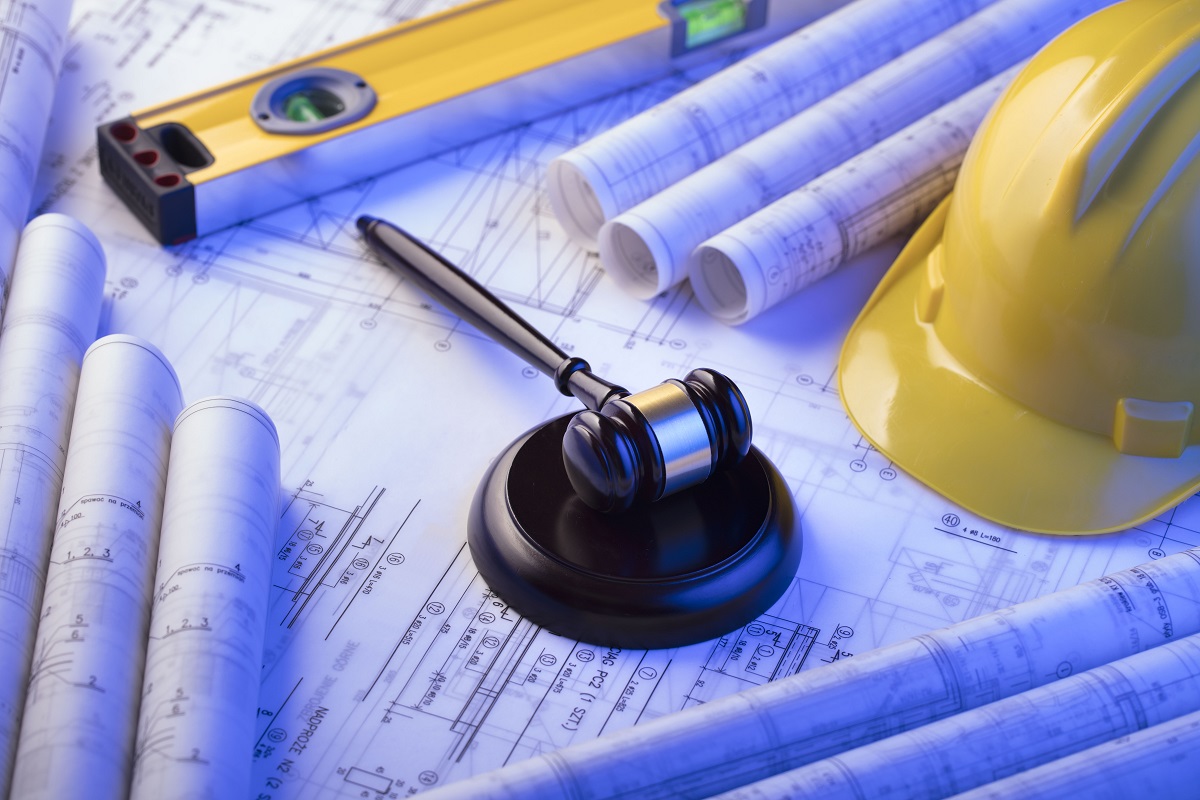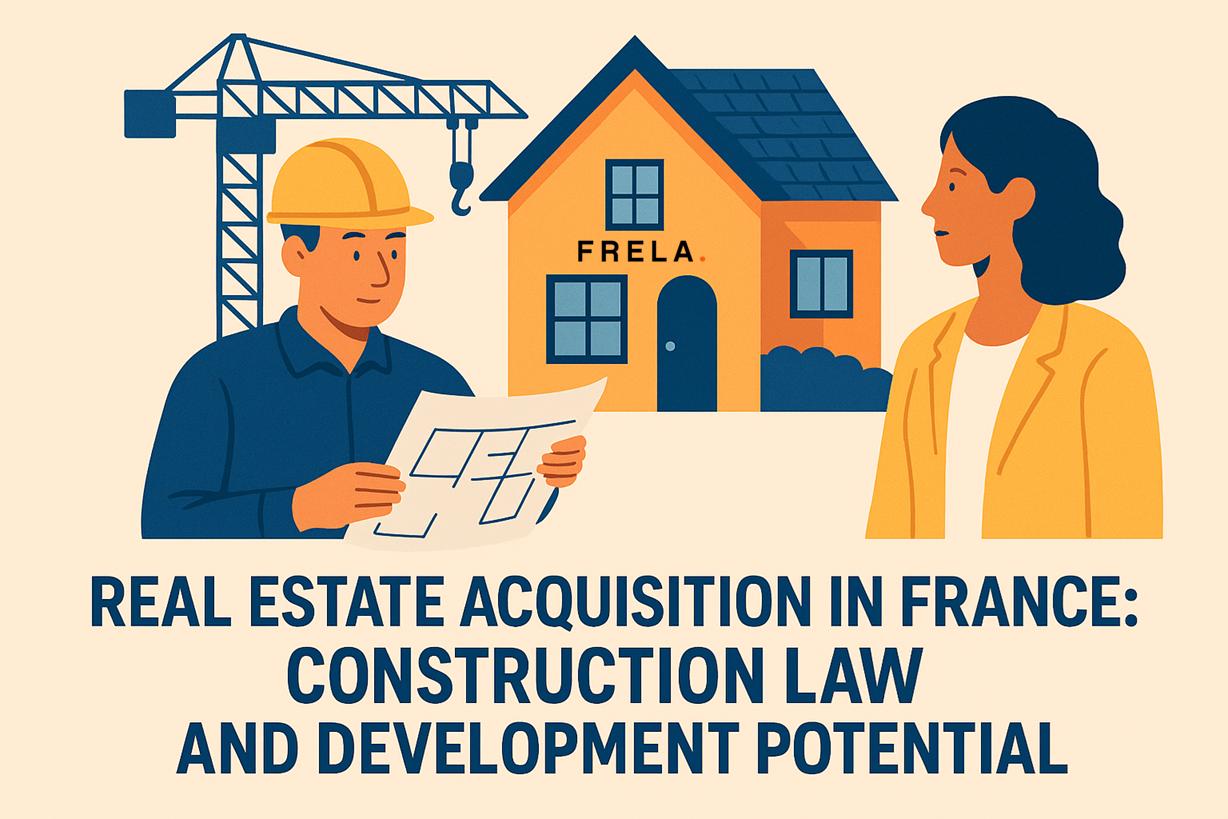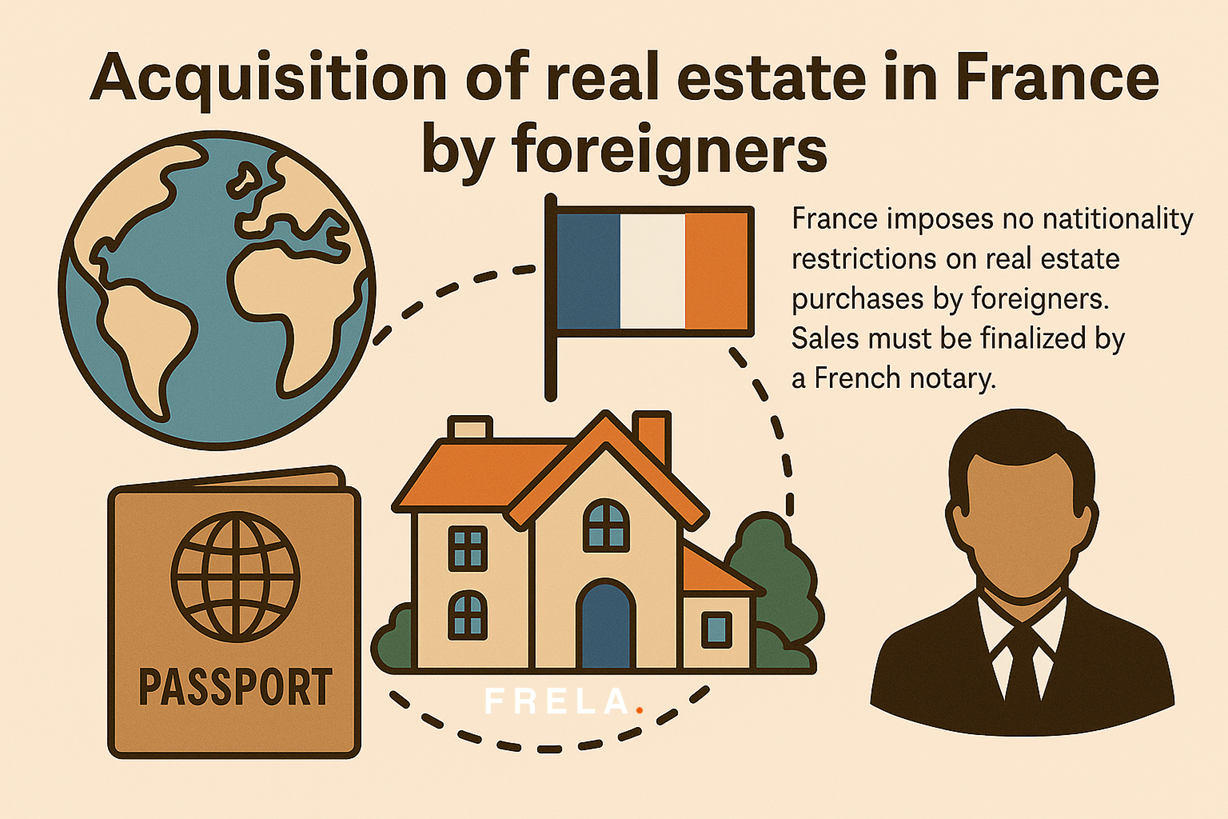Real Estate and Urban Planning Law: Balancing Development and Regulation
Real estate and urban planning law are deeply intertwined, governing the way land is used, developed, and preserved. These legal frameworks shape cities, towns, and rural areas, balancing private investment with public interests such as environmental conservation, infrastructure development, and cultural preservation. In France, real estate and urban planning law form a sophisticated and comprehensive system, requiring a thorough understanding to navigate the complexities of property transactions and land use regulations.


Real estate law in France revolves around the ownership, transfer, and development of property. Urban planning law, on the other hand, regulates how land can be used and developed within the framework of public policies and zoning rules. Together, they influence every aspect of real estate development, from purchasing land to constructing buildings and ensuring compliance with zoning and environmental regulations. For real estate developers, property owners, and public authorities, understanding and adhering to these laws is essential for the success of any project.
At the core of urban planning law in France is the Code de l’urbanisme, which provides the legal framework for land use and development. Local authorities play a significant role in urban planning, creating zoning plans and regulations such as the Plan Local d’Urbanisme (PLU) and Schéma de Cohérence Territoriale (SCoT). These plans dictate how land within their jurisdictions can be used, setting parameters for residential, commercial, industrial, and agricultural zones. For real estate developers, these plans are critical, as they determine the feasibility of a project and outline the conditions under which construction can proceed.
Real estate transactions often begin with the purchase of land or property, and the legal intricacies of these transactions are governed by French property law. Developers must conduct due diligence to ensure that the land or property complies with urban planning regulations and is free from legal disputes or environmental liabilities. This process typically involves reviewing zoning plans, verifying building permits, and assessing any restrictions or easements that may apply to the property. Legal counsel is essential during this stage, as errors or oversights can lead to costly delays or legal disputes.
The process of obtaining building permits is one of the most critical steps in real estate development, directly tying urban planning law to the real estate sector. In France, a permis de construire (building permit) is required for most construction projects, while smaller works may require a déclaration préalable de travaux (prior declaration of work). The application process involves submitting detailed plans and documentation to the local authority, demonstrating compliance with zoning regulations, building codes, and environmental laws. Urban planning law sets the framework for these requirements, and local authorities have the discretion to approve or reject applications based on their adherence to local planning documents.
Environmental considerations are becoming increasingly important in real estate and urban planning law. The Code de l’environnement mandates environmental impact assessments for certain types of projects, particularly large-scale developments or those in sensitive areas. These assessments evaluate the potential effects of a project on natural resources, biodiversity, and the surrounding community. For developers, meeting these requirements is not only a legal obligation but also a way to align with growing public demand for sustainable development. Projects that fail to comply with environmental laws can face significant legal and financial penalties, as well as reputational damage.
One of the challenges in real estate and urban planning law is balancing the rights of property owners with the needs of the community. Public authorities have the power to expropriate private land for public purposes, such as infrastructure projects or urban redevelopment. This process, governed by expropriation laws, requires authorities to demonstrate that the project serves a legitimate public interest and to compensate property owners fairly. Legal disputes often arise over the valuation of the property or the justification for the expropriation, requiring skilled legal representation to resolve.
Heritage preservation is another significant aspect of urban planning law that impacts real estate development. France’s rich architectural and cultural heritage is protected by laws that regulate construction and development near historical monuments or within designated heritage zones. Developers must obtain additional approvals from heritage authorities, such as the Architectes des Bâtiments de France, before proceeding with projects in these areas. While these regulations aim to preserve the country’s cultural identity, they can pose challenges for developers seeking to modernize or repurpose historic properties.
Litigation is an inevitable aspect of real estate and urban planning law, as disputes can arise at any stage of a project. Common issues include challenges to zoning decisions, disputes over building permits, and conflicts between developers and local authorities. Administrative courts handle these disputes, applying the principles of urban planning law to determine whether the contested decisions or actions were lawful. For property owners and developers, navigating these disputes requires a deep understanding of the legal framework and the ability to present compelling arguments to the court.
Urban planning law also intersects with real estate law in the context of mixed-use developments and large infrastructure projects. These projects often involve complex negotiations between public authorities, private developers, and community stakeholders. The legal agreements governing these developments must address issues such as land use, public infrastructure contributions, and compliance with zoning and environmental laws. These agreements are critical for ensuring that the project meets the needs of all parties while adhering to legal requirements.
Real estate and urban planning law are also shaped by broader policy goals, such as addressing housing shortages or promoting urban sustainability. In France, government initiatives like the Loi Pinel provide tax incentives to encourage real estate investment in designated areas. Similarly, urban renewal programs aim to revitalize deteriorated neighborhoods, often involving public-private partnerships to balance economic viability with social objectives. Legal expertise is essential in structuring these projects to align with policy goals while meeting the demands of investors and developers.
The relationship between real estate and urban planning law is both dynamic and complex, reflecting the evolving needs of society and the built environment. For developers, property owners, and local authorities, navigating this intersection requires a comprehensive understanding of the legal landscape and a strategic approach to managing risks and opportunities. Whether securing building permits, resolving disputes, or addressing environmental and heritage concerns, the guidance of skilled legal professionals is indispensable. Real estate and urban planning law not only regulate how land is used and developed but also shape the cities and communities of the future, making them critical components of France’s legal and economic framework.
About the Author :
Business lawyers, bilingual, specialized in acquisition law; Benoit Lafourcade is co-founder of Delcade lawyers & solicitors and founder of FRELA; registered as agents in personal and professional real estate transactions. Member of AAMTI (main association of French lawyers and agents).
FRELA : French Real Estate Lawyer Agency, specializing in acquisition law to secure real estate and business transactions in France.
Paris, 15 rue Saussier-Leroy, Paris
Bordeaux, 24 Rue du manège, 33000 Bordeaux
Lille, 40 Theater Square, 59800 Lille

This article is provided for general information only and may not reflect the most recent legal or tax developments. It does not constitute legal advice. Please contact us for personalised guidance before making any decision.




